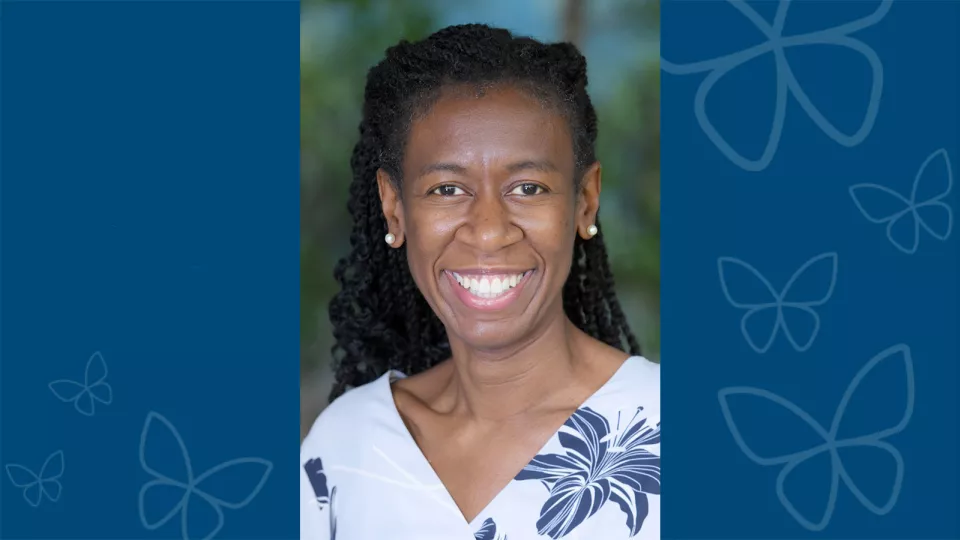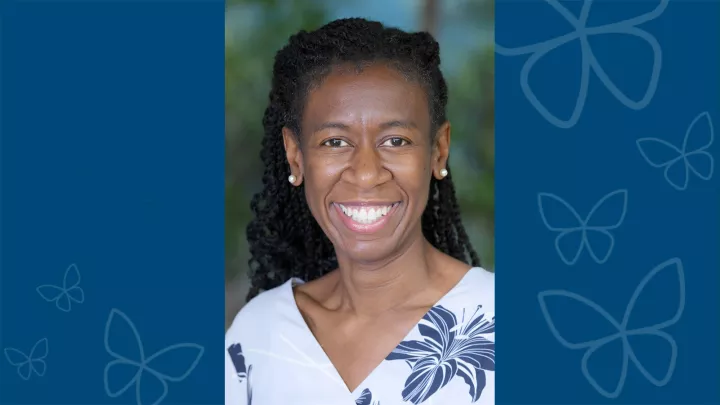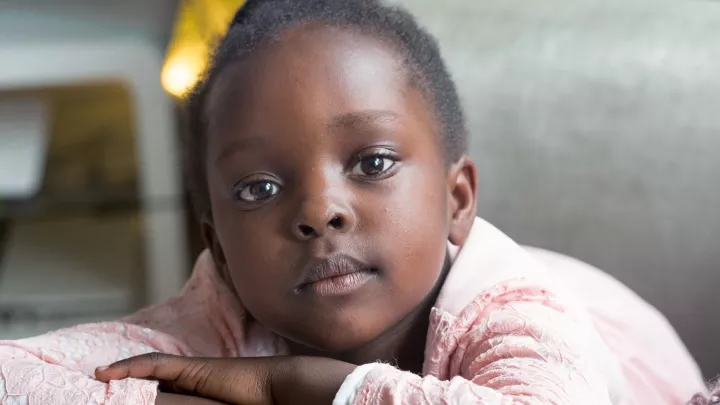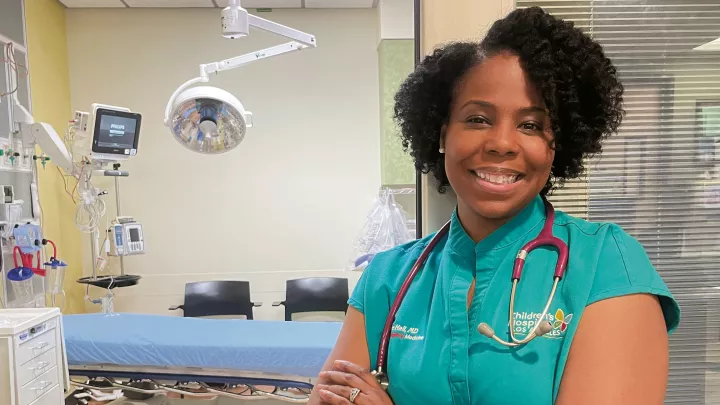
Research Faculty Spotlight: Ashaunta Anderson, MD, MPH, MSHS
Ashaunta Anderson, MD, MPH, MSHS, was in the midst of her pediatrics residency when she found a shocking table in one of her medical textbooks. The chart was predicting life expectancy based on a baby’s race and ethnicity.
“I thought it was terrible that you could predict, from birth, that an African American or Hispanic child would not live as long as other children,” says Dr. Anderson. “For me, this came across as an absolute emergency.”
That realization prompted her to pursue research in a field that was just starting to emerge: health disparities. Her studies have documented the effects of racial discrimination on child health, but her focus is on finding ways to buffer those impacts.
Under a K23 National Institutes of Health grant, Dr. Anderson is now planning a randomized controlled clinical trial aimed at reinforcing cultural pride in African American children ages 2 to 4.
The intervention is based on an existing national literacy program that provides children’s books to families at well-child visits. In the trial, half of families will instead receive storybooks that celebrate cultural traditions, hairstyles and historical figures—along with education on how to better reinforce cultural pride with their kids.
“African American children disproportionately experience racism, which is associated with behavioral health problems and school failure,” Dr. Anderson explains. “We want to see if this intervention can help boost cultural pride and improve behavioral health and school readiness.”
The oldest of four kids, she grew up just outside of New Orleans and says in hindsight she was “always a pediatrician in the making.”
“I love interacting with children and families, and I love serving the underserved,” says Dr. Anderson, who joined the CHLA faculty in 2017 and also studies disparities in care in sickle cell disease. “I strongly believe in allowing people to reach their full potential. That informs all the work I do.”
A mom of two children, ages 4 and 8, she describes her life outside of work as “making sure they get to where they need to go!” She also loves reading, French culture (“that’s my Louisiana thing”) and running half-marathons.


